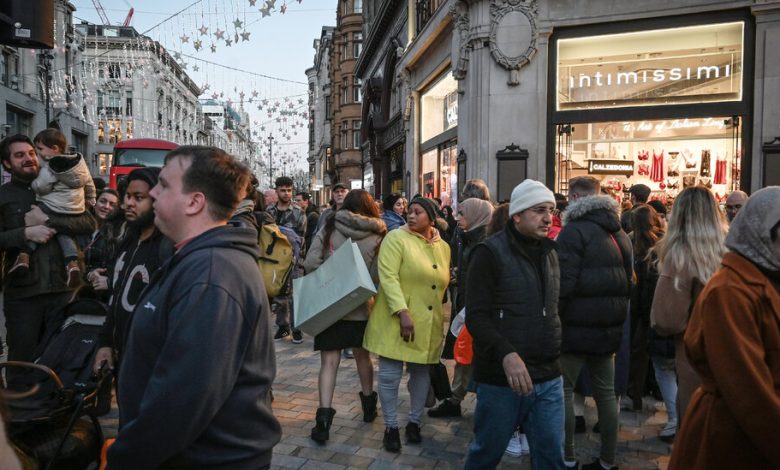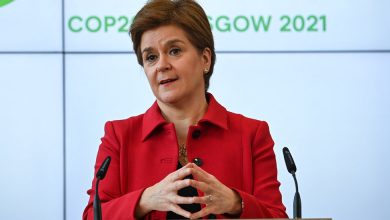U.K. Inflation Unexpectedly Cools to 3.9 Percent, Lowest in 2 Years

The News
A streak of unexpectedly good news on inflation has continued in Britain, as the annual rate of price increases dropped to its lowest level in more than two years.
Consumer prices in Britain rose 3.9 percent in November from a year earlier, the Office for National Statistics said on Wednesday. That was down from 4.6 percent the previous month and the lowest since September 2021. Price growth slowed as fuel costs declined and food inflation continued to ease. Economists, including those at the Bank of England, had expected the inflation rate to hold steady through the end of the year.
Deeper Into the Numbers: Core inflation falls to lowest since January 2022.
Other measures of inflation that are used to assess how deeply price pressures are embedded in the economy also eased. Core inflation, which excludes energy and food prices that are more volatile and heavily influenced by international markets, fell to 5.1 percent in November, from 5.7 percent the previous month.
Services inflation — a gauge of company wage costs — cooled slightly, to 6.3 percent.
Some of the slowdown in inflation can be explained by price trends for more erratic goods and services, such as air travel, computer games and live music. Still, Wednesday’s data were “clearly a big downside surprise,” Chris Hare, an economist at HSBC, wrote in a research note. “Up until now, the U.K. has not experienced the same degree of softer-than-expected inflation” readings like in the United States and eurozone, he said. “But that could be changing.”
Why It Matters: Lower inflation is a relief for household budgets.
Inflation has moderated significantly from its peak last year, when the rate climbed above 11 percent, its fastest pace in four decades. As household budgets were squeezed by high energy and food costs, the Bank of England was aggressively raising interest rates to squash inflation.
Recently, the government has argued that the British economy has turned a corner. Inflation is running lower than average wage growth, which, for some, should help ease a prolonged cost of living crisis.
“With inflation more than halved we are starting to remove inflationary pressures from the economy,” Jeremy Hunt, the chancellor of the Exchequer, said in a statement. “But many families are still struggling with high prices so we will continue to prioritize measures that help with cost of living pressures.”
The pain of higher inflation is still being felt by many households. Food prices are up 27 percent compared with two years ago and household energy bills are set to rise in January. The impact of higher interest rates is still filtering through the economy, as homeowners pay higher mortgage rates and companies face higher funding costs.
What Happens Next: Bank of England balances stubborn inflation with weak growth.
Inflation in Britain remains about double the Bank of England’s 2 percent target and despite the unexpectedly large slowdown in November it is still relatively high compared with its Western European neighbors.
Bank of England policymakers said last week that they expect to keep interest rates high for a while, and that it was too early to talk about cutting interest rates even though inflation is slowing and the economy is expected to flatline until 2025. One thing that rate setters are focused on is the persistent strength of wage growth: Average pay was up about 7 percent in the three months through October, compared with a year earlier.
This week, Ben Broadbent, a deputy governor at the central bank, warned that policymakers needed to see a “more protracted and clearer decline” in the official wage data before they could be sure this source of inflationary pressure had eased.
But traders are betting that the faster-than-expected slowdown in inflation will encourage the central bank to bring forward rate cuts and do more of them next year. The pound fell 0.7 percent against the U.S. dollar and yields on government bonds dropped substantially.



